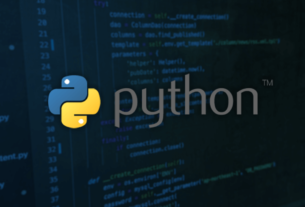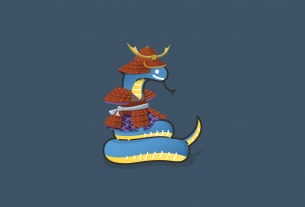In this article we will introduce the most interesting Python programming books so that parents can teach their kids programming.
Python is a powerful, expressive programming language that’s easy to learn and fun to use! But books about learning to program in Python can be kind of dull, gray, and boring, and that’s no fun for anyone.
1. Python for Kids: A Playful Introduction to Programming
- Author: Jason R. Briggs
- Kids ages: 10+
- Review: 4.5
Python for Kids brings Python to life and brings you (and your parents) into the world of programming. The ever-patient Jason R. Briggs will guide you through the basics as you experiment with unique (and often hilarious) example programs that feature ravenous monsters, secret agents, thieving ravens, and more. New terms are defined; code is colored, dissected, and explained; and quirky, full-color illustrations keep things on the lighter side.
I’ve looked at just about every Python book for kids, and this is the best one. It is not perfect, but it explains things in an easy enough manner for kids to learn on their own if they miss a class. So I use it as the textbook for my classes.
The explanation of String formatting needs to be updated. We don’t do embedded values using %s anymore.I recommend skipping the chapters on Turtle Graphics and tkinter.
The introductory chapter on classes and objects is not bad, but the topic is beyond what most kids will need, and they should really focus on imperative / procedural programming first using just lists and dictionaries as their basic data structures.
2. Coding for Kids: Python: Learn to Code with 50 Awesome Games and Activities
- Author: Adrienne Tacke
- Kids ages: 10+
- Review: 4.5
Coding for Kids: Python starts kids off right with 50 fun, interactive activities that teach them the basics of the Python programming language. From learning the essential building blocks of programming to creating their very own games, kids will progress through unique lessons packed with helpful examples―and a little silliness.
Chapters are simple and approachable with some help from knowledgeable parent/tutor/teacher. The content is not boring either. They do not go on and on about syntax and its variations.
The activities are also simple for enthusiastic kids or teens. More challenging activities are clearly marked. The exercises require problem solving. However, they do not require any knowledge of computer algorithms.
This book does a good job of showing how to program in Python. It’s mostly focused on syntax and not algorithms which is great. Doing both at the same time may be challenging for any child.
If your child has expressed interest in coding, then this is a great introductory (sort of) book. If not, I would recommend starting with Scratch and simple programming toys as first introduction to programming/coding.
3. Coding Games in Python (Computer Coding for Kids)
- Author: DK
- Kids ages: 9 – 12 years
- Review: 4.5
DK was founded in London in 1974 and is now the world leading illustrated reference publisher and a member of the Penguin Random House division of Bertelsmann. DK publishes highly visual, photographic non-fiction for adults and children. DK produces content for consumers in over 100 countries and over 60 languages, with offices in the UK, India, US, Germany, China, Canada, Spain and Australia.
Parents with kids as young as 7 or 8 can help their little ones begin a real programming language. You don’t need pseudo-coding or fancy robots to learn to code–just this book and a free copy of Python will do the trick. You can even use the CanaKit Raspberry Pi 4 4GB Starter PRO Kit – 4GB RAM as your computer if you have a TV and a keyboard lying around. For older kids in their tweens or early teens, this book will be all they need, even with no help from adults.
Each chapter shows you how to construct a complete working game in simple numbered steps. Using freely available resources such as Pygame, Pygame Zero, and a downloadable pack of images and sounds, you can add animations, music, scrolling backgrounds, scenery, and other exciting professional touches.
After building the game, find out how to adapt it to create your own personalised version with secret hacks and cheat codes!
You’ll master the key concepts that programmers need to write code – not just in Python, but in all programming languages. Find out what bugs, loops, flags, strings, and turtles are. Learn how to plan and design the ultimate game, and then play it to destruction as you test and debug it.
4. Coding Projects in Python (Computer Coding for Kids)
- Author: DK Children
- Kids ages: 9 – 12 years
- Review: 4.5
You should read this book after you have finished the Coding Games in Python (Computer Coding for Kids)
Using fun graphics and easy-to-follow instructions, this straightforward, visual guide shows young learners how to build their own computer projects using Python. Step-by-step instructions teach essential coding basics like loops and conditionals, and outline 14 fun and exciting projects. Included is a script that cracks secret codes, a quiz to challenge family and friends, a matching game, and more.
5. Coding for Kids: 2 Books in 1
- Author: Matthew Teens
- Kids ages: 7+
- Review: 4.5
This book is phenomenal. It is for a learner and talks you through transferring Python onto your PC, gives the hypothetical foundation of the language, and strolls you through an assortment of exercises.
Coding for Kids in Python will teach you how to use the fundamental data structures such as variables and functions. You will also learn how to organize your code and even reuse it in your future projects. Using loops and conditional statements will become a breeze, and the Python Turtle module will give you the opportunity to draw shapes and patterns.
Above all, Coding for Kids in Python will inspire you to grow and become an independent young programmer who isn’t afraid to continue learning.
6. Python for Kids
- Author: Christian Morrison
- Kids ages: 7+
- Review: 4.5
Inside this book, you’ll find a perfect introduction to Python Programming that will make your kid excited every time he or she sits down in from of the computer. Not to play games – but to learn!
Coding is a good skill to learn in this day and age! This is great for homeschoolers or anyone whose children want to learn coding, or even if you’re an adult who needs to start right from the beginning and might have a harder time understanding the instructions in a book for adults!
This book has simple instructions and language to make it so easy to understand. It goes over getting started with Python and the basics, and then goes further into loops and functions and modules. It’s got coding and programming that kids will be interested in like game programming and turtle graphics.


